Jabuticaba (Plinia cauliflora), often referred to as the Brazilian grape tree, is a unique and exotic fruit native to Brazil. Its rich purple skin and white, juicy pulp have been consumed for centuries, not only for their delightful taste but also for their numerous health benefits. Recent scientific studies have begun to uncover the vast array of nutrients and bioactive compounds present in jabuticaba, highlighting its potential as a functional food with various health-promoting properties. These findings underscore the remarkable Jabuticaba benefits for overall wellness.
 Antioxidant Properties
Antioxidant Properties
One of the most remarkable features of jabuticaba is its high antioxidant content. The fruit’s dark purple skin is packed with anthocyanins, a group of flavonoids known for their potent antioxidant activity. Antioxidants play a critical role in neutralizing free radicals in the body, thereby reducing oxidative stress and lowering the risk of chronic diseases such as cancer and cardiovascular diseases .
Beyond anthocyanins, jabuticaba also contains other powerful antioxidants such as polyphenols, tannins, and vitamin C. These compounds collectively contribute to the fruit’s high antioxidant capacity, distinguishing it from other berries and tropical fruits. Polyphenols, particularly, are known for their ability to scavenge harmful free radicals and reduce inflammation, making them beneficial in managing and preventing a range of health conditions.
Tannins, on the other hand, provide astringent properties that not only protect the plant from microbial infection but also offer therapeutic benefits when consumed, including improved gut health and reduced blood sugar levels.
 Anti-Inflammatory Effects
Anti-Inflammatory Effects
Research indicates that jabuticaba has significant anti-inflammatory properties. A study published in the Journal of Agricultural and Food Chemistry found that the phenolic compounds in jabuticaba can inhibit the production of pro-inflammatory cytokines, suggesting its potential role in managing inflammatory conditions such as arthritis and inflammatory bowel disease .
Moreover, jabuticaba is rich in unique anthocyanins, particularly delphinidin and cyanidin, which are not only responsible for its deep purple color but also play a crucial role in its anti-inflammatory capabilities. Unlike other common berries, the concentration and variety of anthocyanins in jabuticaba are exceptional. These compounds have been shown to downregulate key inflammatory pathways, such as the NF-κB pathway, which is often activated in chronic inflammatory diseases. This potent combination of anthocyanins sets jabuticaba apart from other anti-inflammatory fruits like blueberries and blackberries, which contain different profiles of these beneficial compounds.
In addition to anthocyanins, jabuticaba contains a high level of ellagic acid and other ellagitannins. These polyphenolic compounds have been demonstrated to exert strong anti-inflammatory effects by modulating the activity of COX-2 enzymes, which are central to the inflammatory response. Studies have suggested that the unique synergy between the phenolic compounds in jabuticaba enhances its ability to reduce oxidative stress and inflammation more effectively than many other fruits. For example, the combination of ellagic acid and anthocyanins in jabuticaba can significantly suppress the expression of pro-inflammatory mediators like TNF-α and IL-6, which are often implicated in conditions such as rheumatoid arthritis and inflammatory bowel disease.
 Anti-Cancer Potential
Anti-Cancer Potential
Emerging evidence suggests that jabuticaba may possess anti-cancer properties. The antioxidants and polyphenols in jabuticaba have been shown to induce apoptosis (programmed cell death) in certain cancer cell lines, including colon and breast cancer cells. These findings indicate that jabuticaba could be a valuable addition to cancer prevention strategies .
Moreover, jabuticaba is rich in unique bioactive compounds such as anthocyanins, ellagic acid, and myricetin, which are not only potent antioxidants but also exhibit specific anti-cancer activities. These compounds can modulate the expression of genes involved in the cell cycle and apoptosis, leading to the suppression of tumor growth and the induction of cancer cell death. In particular, the anthocyanins in jabuticaba have been shown to inhibit the proliferation of colon cancer cells by disrupting the cellular signaling pathways that promote tumor growth.
Additionally, ellagic acid, another prominent polyphenol found in jabuticaba, has garnered attention for its chemopreventive properties. Ellagic acid can interfere with various stages of cancer development, including the initiation, promotion, and progression of tumors. It achieves this by inducing apoptosis in cancer cells, inhibiting their ability to spread, and by enhancing the body’s natural detoxification processes to eliminate carcinogens more effectively. Notably, ellagic acid from jabuticaba has been observed to have a synergistic effect when combined with other conventional treatments, potentially improving the efficacy of therapies for breast and colon cancers.
Furthermore, myricetin, a flavonoid abundantly present in jabuticaba, contributes to its anti-cancer potential through several mechanisms. Myricetin has been shown to inhibit the migration and invasion of cancer cells, crucial steps in metastasis. It also modulates the activity of enzymes involved in the metabolism of carcinogens, thereby reducing their harmful effects. Research suggests that myricetin can sensitize cancer cells to chemotherapy, enhancing the response to treatment and reducing the likelihood of resistance.
 Cardiovascular Health
Cardiovascular Health
Consumption of jabuticaba may also support cardiovascular health. The fruit’s high fiber content helps lower cholesterol levels, while its antioxidants contribute to the reduction of oxidative stress on the cardiovascular system. A study in the journal Food Research International highlighted that jabuticaba extract improved lipid profiles and reduced arterial stiffness in animal models, pointing to its potential benefits for heart health .
Anthocyanins have been shown to enhance endothelial function, which is vital for regulating blood pressure and preventing arteriosclerosis. Furthermore, polyphenols in jabuticaba have been observed to inhibit the oxidation of low-density lipoprotein (LDL) cholesterol, a key factor in the formation of arterial plaques that can lead to heart attacks and strokes.
Moreover, jabuticaba contains significant levels of ellagic acid and resveratrol, both of which are linked to cardiovascular benefits. Ellagic acid has been found to reduce inflammation and improve the health of the vascular system, helping to prevent conditions such as atherosclerosis. Resveratrol, often associated with red wine, is present in jabuticaba in similar concentrations and offers a protective effect on the heart by improving the function of the mitochondria in cardiac cells. This improvement in mitochondrial function contributes to better energy efficiency and resilience against stressors in the heart muscle.
Unique to jabuticaba is its high tannin content, which, although primarily known for its astringent properties, also contributes to cardiovascular health. Tannins have been demonstrated to reduce blood pressure and improve blood vessel elasticity, making them valuable in managing hypertension. A study in the Journal of Medicinal Food highlighted that the consumption of jabuticaba peel extract led to a significant reduction in systolic blood pressure in hypertensive rats.
 Skin Health
Skin Health
Jabuticaba’s rich vitamin C and antioxidant content make it beneficial for skin health. Vitamin C is essential for collagen synthesis, which maintains skin elasticity and firmness. The antioxidants in jabuticaba also protect the skin from damage caused by ultraviolet (UV) radiation and environmental pollutants, helping to prevent premature aging and skin diseases .
The high anthocyanin content in jabuticaba is particularly effective in protecting the skin from oxidative stress and inflammation, two key factors in skin aging and the development of skin conditions like eczema and psoriasis. Unlike many other fruits, the anthocyanins in jabuticaba are present not just in the skin but also in the pulp, making the entire fruit beneficial for skin health.
Furthermore, jabuticaba contains unique tannins, which have astringent properties that can help tighten the skin and minimize the appearance of pores. These tannins also possess anti-inflammatory and antimicrobial effects, making jabuticaba a natural ally in combating acne and other skin infections. The fruit’s ability to improve blood circulation further enhances its benefits for skin health, as it ensures that vital nutrients and oxygen are efficiently delivered to skin cells, promoting a healthier and more radiant complexion. When compared to other fruits, jabuticaba’s combination of anthocyanins, tannins, and high vitamin C content offers a multifaceted approach to skin care, providing both protective and restorative benefits.
 Benefits for Digestive Health
Benefits for Digestive Health
Jabuticaba is also beneficial for digestive health due to its high fiber content. Dietary fiber is essential for maintaining regular bowel movements and preventing constipation. Additionally, fiber acts as a prebiotic, promoting the growth of beneficial gut bacteria, which are crucial for a healthy digestive system. Research has shown that the soluble fiber in jabuticaba can help manage blood sugar levels by slowing the absorption of sugar, making it beneficial for people with diabetes .
Beyond its fiber content, jabuticaba is rich in anthocyanins. Anthocyanins help protect the digestive tract from oxidative stress and inflammation, which are linked to various gastrointestinal disorders, such as irritable bowel syndrome (IBS) and inflammatory bowel disease (IBD). The anti-inflammatory effects can also aid in soothing the gut lining, reducing the risk of ulcers and promoting overall gut health.
Moreover, jabuticaba contains significant levels of tannins. Tannins can bind to proteins in the digestive tract, forming a protective layer that may help reduce irritation and inflammation. This makes jabuticaba particularly beneficial for individuals with sensitive stomachs or those recovering from gastrointestinal disturbances. Furthermore, tannins have been shown to have antimicrobial activity, which can help maintain a balanced gut microbiome by inhibiting the growth of harmful bacteria while promoting the proliferation of beneficial bacteria.
In addition to these unique components, jabuticaba is a good source of vitamin C and other phenolic compounds that contribute to its health benefits. Vitamin C plays a role in the synthesis of collagen, a protein that supports the structure and integrity of the gastrointestinal lining. This can enhance the repair and regeneration of the gut lining, especially in cases of damage caused by chronic inflammation or infections. The phenolic compounds in jabuticaba, similar to those found in other berries, have been associated with promoting healthy digestion by enhancing enzymatic activities in the digestive tract, further aiding in the breakdown and absorption of nutrients.
 Anti-Obesity Properties
Anti-Obesity Properties
Recent studies have highlighted jabuticaba’s potential in combating obesity. The fruit contains compounds that can inhibit the accumulation of fat and promote fat metabolism. A study published in the journal Food & Function found that jabuticaba peel extract reduced body weight gain and improved lipid metabolism in obese mice. These findings suggest that jabuticaba could be a useful dietary supplement for weight management and the prevention of obesity-related diseases.
Anthocyanins play a crucial role in this regard. These powerful antioxidants have been shown to inhibit adipogenesis, the process by which preadipocytes mature into adipocytes, or fat cells. This action effectively reduces the formation and storage of fat in the body. Moreover, anthocyanins have been linked to the upregulation of adiponectin, a hormone involved in regulating glucose levels and fatty acid breakdown. By enhancing adiponectin levels, jabuticaba not only helps in managing weight but also in mitigating insulin resistance, a common issue in obese individuals.
Polyphenols present in jabuticaba further amplify its weight management benefits. Additionally, these polyphenols enhance lipid metabolism by modulating enzymes involved in fat oxidation and storage. This results in decreased fat accumulation and improved overall lipid profiles. Such effects are particularly beneficial in addressing visceral fat, which is closely associated with increased risk of cardiovascular diseases and diabetes.
Neuroprotective Effects
Emerging research suggests that jabuticaba may have neuroprotective properties, which could help protect against neurodegenerative diseases such as Alzheimer’s and Parkinson’s. The antioxidants in jabuticaba can cross the blood-brain barrier and help reduce oxidative stress in the brain, a key factor in the development of neurodegenerative diseases. A study published in Nutritional Neuroscience indicated that jabuticaba extract improved memory and cognitive function in animal models.
Jabuticaba’s neuroprotective capabilities are largely attributed to its rich composition of unique bioactive compounds, particularly anthocyanins, polyphenols, and ellagic acid. Unlike many other fruits, jabuticaba’s skin is densely packed with anthocyanins, the pigments responsible for its deep purple hue. The ability of these compounds to cross the blood-brain barrier is crucial, as it allows them to exert their protective actions directly on brain tissues. In studies, anthocyanins have been shown to mitigate oxidative damage and inflammation in neuronal cells, which are significant contributors to neurodegenerative conditions.
Additionally, polyphenols in jabuticaba can modulate signaling pathways involved in inflammation and cellular stress responses. These pathways include the nuclear factor erythroid 2-related factor 2 (Nrf2) pathway, which enhances the expression of detoxifying and antioxidant enzymes, and the nuclear factor kappa-light-chain-enhancer of activated B cells (NF-κB) pathway, which plays a critical role in regulating the immune response and inflammation. By influencing these pathways, jabuticaba not only protects neurons from damage but also promotes their survival and function.
Immune System Support
Jabuticaba is rich in vitamin C, an essential nutrient for immune function. Vitamin C stimulates the production of white blood cells, which are crucial for fighting infections. Additionally, the fruit’s polyphenols have been shown to enhance immune responses and protect against pathogens. A study in the Journal of Medicinal Food found that jabuticaba extract had immunomodulatory effects, boosting the body’s natural defense mechanisms.
One of the standout features of jabuticaba is its rich concentration of anthocyanins. These anthocyanins not only exhibit strong antioxidant properties but also play a vital role in modulating the immune response. Research has shown that anthocyanins can enhance the activity of natural killer cells, a type of white blood cell that targets virus-infected and cancerous cells. This unique property helps jabuticaba provide a robust defense against a wide range of pathogens, making it a valuable addition to a diet aimed at bolstering immunity.
Ellagic acid, in particular, has been found to inhibit the growth of harmful bacteria and viruses, contributing to the maintenance of a healthy immune system. Myricetin, on the other hand, has been shown to regulate the production of cytokines, the signaling proteins that orchestrate the immune response. By helping to balance the inflammatory processes in the body, these polyphenols assist in preventing overactive immune responses that can lead to chronic inflammation and autoimmune disorders.
Diabetes Management
The fiber and polyphenols in jabuticaba can help in managing diabetes by improving insulin sensitivity and regulating blood sugar levels. The fruit’s low glycemic index means it does not cause rapid spikes in blood glucose levels. A study in the Journal of Ethnopharmacology reported that jabuticaba peel extract significantly reduced blood glucose levels in diabetic rats, highlighting its potential as a natural remedy for diabetes management.
Unlike many other fruits, jabuticaba is rich in both fiber and polyphenols, which are crucial for regulating blood sugar levels and improving insulin sensitivity. The fiber content helps slow down the absorption of sugars in the gut, preventing rapid spikes in blood glucose after meals. Meanwhile, polyphenols exhibit antioxidant properties that can protect pancreatic cells from damage and support their function in insulin production.
One distinctive feature of jabuticaba is its low glycemic index (GI), which measures how quickly a food raises blood sugar levels. Foods with a low GI are particularly beneficial for individuals with diabetes because they promote more stable blood glucose control over time. Jabuticaba’s low GI makes it a suitable choice for incorporating into diets aimed at managing diabetes.
Enhanced Vision
Jabuticaba contains significant amounts of vitamin A and other carotenoids, which are essential for maintaining good vision. These compounds help protect the eyes from oxidative damage and reduce the risk of age-related macular degeneration and cataracts. Regular consumption of jabuticaba can support overall eye health and improve visual acuity.
Jabuticaba stands out among other fruits due to its unique composition of anthocyanins. These compounds not only provide antioxidant benefits crucial for eye health but also have anti-inflammatory properties that can further protect the delicate tissues of the eye. Unlike many fruits, jabuticaba contains a rare combination of antioxidants such as ellagic acid, quercetin, and resveratrol, which work synergistically to combat free radicals and promote cellular repair within the eye.
Moreover, jabuticaba is rich in vitamins C and E, both of which play pivotal roles in maintaining ocular health. Vitamin C supports the health of blood vessels within the eyes, ensuring optimal circulation and nutrient delivery to the retina and surrounding tissues. Meanwhile, vitamin E protects cell membranes from oxidative stress, safeguarding the structural integrity of the eye and enhancing its resilience against age-related degenerative changes.
The fruit’s nutritional profile also includes zinc and selenium, essential minerals known for their role in supporting the immune system and contributing to the maintenance of healthy vision. Zinc, in particular, is crucial for the metabolism of vitamin A in the retina, crucial for low-light and color vision. Selenium complements these benefits by acting as a cofactor for antioxidant enzymes, reinforcing the body’s defenses against oxidative damage that can lead to vision impairment.
Benefits for Bone Health
Jabuticaba also supports bone health due to its rich content of minerals such as calcium, magnesium, and phosphorus. These minerals are essential for maintaining bone density and strength. Calcium and phosphorus work together to form hydroxyapatite, the mineral compound that gives bones their hardness. Magnesium, on the other hand, plays a crucial role in bone formation and the regulation of calcium levels in the body. Regular consumption of jabuticaba can help in preventing osteoporosis and other bone-related disorders.
Anthocyanins, in particular, have been studied for their potential to enhance bone formation and inhibit bone resorption. These compounds may help in maintaining bone density by stimulating osteoblast activity, the cells responsible for bone formation. Flavonoids found in jabuticaba also contribute to bone health by supporting collagen production, which is essential for maintaining the structural integrity of bones.
Moreover, jabuticaba contains trace elements and micronutrients that are crucial for bone health but are often overlooked in other fruits. These include zinc, manganese, and copper, which play roles in bone mineralization and enzymatic processes involved in bone metabolism. The combination of minerals, phytochemicals, and trace elements in jabuticaba offers a comprehensive approach to supporting bone density and preventing bone disorders.
Hepatoprotective Effects
Recent studies have indicated that jabuticaba may have hepatoprotective properties, meaning it can help protect the liver from damage. The antioxidants and polyphenols in jabuticaba help reduce oxidative stress and inflammation in the liver, promoting its overall health. A study published in Food Research International found that jabuticaba peel extract reduced liver damage markers in rats exposed to toxins, suggesting its potential in supporting liver health.
Moreover, jabuticaba is rich in polyphenols such as ellagic acid and gallic acid, which possess anti-inflammatory properties. These polyphenols help modulate immune responses and inhibit inflammatory pathways in the liver, potentially preventing chronic inflammation that can lead to liver diseases like cirrhosis or hepatitis.
Another distinguishing feature of jabuticaba is its high content of vitamin C, which complements its antioxidant effects. Vitamin C supports the regeneration of other antioxidants like glutathione, crucial for detoxification processes in the liver. By enhancing these mechanisms, jabuticaba not only protects liver cells from toxins but also aids in their repair and regeneration.
Studies have also highlighted jabuticaba’s ability to improve lipid metabolism in the liver. Compounds found in jabuticaba extract have been observed to regulate lipid levels and reduce lipid accumulation in hepatocytes, which is beneficial for preventing conditions such as fatty liver disease.
Anti-Allergic Properties
Jabuticaba also exhibits anti-allergic properties, which can be beneficial for individuals with allergic conditions. The fruit’s bioactive compounds have been shown to inhibit the release of histamine, a compound involved in allergic reactions. This can help alleviate symptoms such as itching, swelling, and nasal congestion. A study in the Journal of Agricultural and Food Chemistry demonstrated that jabuticaba extract reduced allergic responses in animal models, highlighting its potential as a natural anti-allergic agent.
Unlike many conventional anti-allergic medications that often target specific pathways or receptors, jabuticaba’s bioactive compounds appear to exert a broader regulatory influence on the immune system. This modulation can help regulate cytokine production and immune cell activation, thereby reducing the intensity and frequency of allergic responses.
Furthermore, jabuticaba’s safety profile and natural origin make it an attractive alternative or complementary therapy for individuals seeking to manage allergic symptoms without the side effects associated with conventional medications. As research into jabuticaba and its bioactive components continues, there is growing interest in exploring its potential applications in clinical settings, aiming to validate and expand upon its traditional uses in allergic disorders.
Antimicrobial Activity
Jabuticaba has demonstrated antimicrobial properties, which can help protect against various infections. The fruit contains compounds that can inhibit the growth of harmful bacteria, viruses, and fungi. This antimicrobial activity is particularly important for preventing infections in the gastrointestinal tract and skin. Research published in the Journal of Food Science found that jabuticaba extracts were effective against common pathogens such as Escherichia coli and Staphylococcus aureus, suggesting its potential use in food preservation and as a natural antimicrobial agent.
One notable component is jaboticabin, a stilbenoid found predominantly in the peel and seeds of the fruit. This compound has been identified for its strong antimicrobial activity against a wide spectrum of pathogens, including bacteria like Salmonella and Listeria, as well as various strains of fungi. The presence of jaboticabin in jabuticaba distinguishes it from other fruits, as many commonly studied fruits lack such specific antimicrobial agents.
Improved Respiratory Health
Jabuticaba may also benefit respiratory health. The fruit’s anti-inflammatory and antioxidant properties can help reduce inflammation in the respiratory tract, alleviating symptoms of asthma and other respiratory conditions. The high vitamin C content supports immune function, which is crucial for fighting respiratory infections. A study published in the Journal of Medicinal Food found that jabuticaba extract reduced inflammation and improved lung function in animal models with induced respiratory conditions.
Moreover, jabuticaba contains a variety of polyphenols, such as ellagic acid and gallic acid, which exhibit strong anti-inflammatory properties. These compounds help to suppress inflammatory pathways in the respiratory tract, reducing swelling and improving airway function. This anti-inflammatory action can provide relief for individuals suffering from conditions like bronchitis or chronic obstructive pulmonary disease (COPD).
Nutritional Value of Jabuticaba per 100 Grams
Jabuticaba (Plinia cauliflora) is a nutrient-dense fruit that offers a wide array of vitamins, minerals, and other beneficial compounds. Here is a detailed breakdown of the nutritional value per 100 grams of fresh jabuticaba:
- Calories: 58 kcal
- Protein: 0.5 g
- Total Fat: 0.1 g
- Saturated Fat: 0.01 g
- Monounsaturated Fat: 0.01 g
- Polyunsaturated Fat: 0.02 g
- Carbohydrates: 15.2 g
- Sugars: 12.6 g
- Dietary Fiber: 2.3 g
- Vitamins:
- Vitamin C: 36.3 mg (60% of the Recommended Daily Allowance, RDA)
- Vitamin E: 1.3 mg (8.7% of the RDA)
- Vitamin A: 3 µg (0.3% of the RDA)
- Folate: 6 µg (1.5% of the RDA)
- Niacin (Vitamin B3): 0.27 mg (1.7% of the RDA)
- Riboflavin (Vitamin B2): 0.02 mg (1.2% of the RDA)
- Thiamin (Vitamin B1): 0.01 mg (0.7% of the RDA)
- Minerals:
- Calcium: 6 mg (0.6% of the RDA)
- Iron: 0.49 mg (2.7% of the RDA)
- Magnesium: 9 mg (2.3% of the RDA)
- Phosphorus: 9 mg (1.3% of the RDA)
- Potassium: 144 mg (4.1% of the RDA)
- Sodium: 1 mg (0.04% of the RDA)
- Zinc: 0.07 mg (0.5% of the RDA)
- Copper: 0.06 mg (3% of the RDA)
- Phytonutrients and Antioxidants:
- Anthocyanins: 35-45 mg
- Polyphenols: 10-15 mg
Key Nutritional Highlights
- Low in Calories: With only 58 calories per 100 grams, jabuticaba is an excellent choice for those looking to maintain or reduce weight.
- Rich in Vitamin C: Provides 60% of the daily recommended intake, which is vital for immune function, skin health, and antioxidant protection.
- Dietary Fiber: Contains 2.3 grams of fiber, aiding in digestion and promoting a healthy gut.
- Antioxidant Power: High levels of anthocyanins and polyphenols contribute to its strong antioxidant properties, which help combat oxidative stress and inflammation.
- Mineral Content: A good source of potassium, which is important for cardiovascular health, and magnesium, which supports muscle and nerve function.
Recipe
Delight your taste buds with the exotic flavors of Jabuticaba in this delectable fruit cake. Native to Brazil, Jabuticaba berries are known for their sweet, grape-like taste and rich antioxidant properties. This cake combines the unique fruit with a moist, tender crumb, creating a dessert that’s both delicious and nutritious. Perfect for special occasions or as a delightful treat with your afternoon tea, this Jabuticaba Fruit Cake is sure to impress with its vibrant flavor and health benefits.
Conclusion
The consumption of jabuticaba offers a multitude of health benefits, from its rich nutritional profile to its potent antioxidant and anti-inflammatory properties. Scientific studies continue to reveal its potential in preventing and managing chronic diseases, promoting cardiovascular health, and enhancing skin vitality. Incorporating jabuticaba into a balanced diet can be a delicious and effective way to boost overall health and well-being.
Contraindications for Jabuticaba Consumption
While jabuticaba offers numerous health benefits, there are some potential contraindications to be aware of:
- Allergic Reactions: Some individuals may have allergies to jabuticaba, experiencing symptoms such as itching, swelling, or difficulty breathing.
- High Fiber Content: Excessive consumption can lead to digestive issues such as bloating, gas, or diarrhea due to its high fiber content.
- Interaction with Medications: The high antioxidant levels in jabuticaba may interact with certain medications, potentially affecting their efficacy.
- Oxalate Content: Jabuticaba contains oxalates, which can contribute to the formation of kidney stones in susceptible individuals.
As with any fruit, it is advisable to consume jabuticaba in moderation and consult with a healthcare provider if you have any underlying health conditions or concerns about potential interactions with medications.
Fascinating Facts About Jabuticaba
- Tree Trunk Blooms
Unlike most fruit trees, jabuticaba fruits grow directly on the trunk and branches, a phenomenon known as cauliflory. This unusual growth pattern makes the tree look like it’s studded with purple gems.
- Rapid Fermentation
Jabuticaba fruits begin to ferment within 3-4 days after being picked, which means they are best consumed fresh or quickly processed into jellies, wines, and liqueurs.
- Multiple Harvests
The jabuticaba tree can produce fruit multiple times a year, sometimes up to five or six times in optimal conditions, providing a nearly continuous supply of fresh fruit.
- Longevity
These trees can live for more than 100 years, and some specimens in Brazil are believed to be several centuries old. Older trees are highly prized for their consistent and abundant fruit production.
- Bonsai Potential
Due to its attractive trunk and foliage, jabuticaba is popular among bonsai enthusiasts. It can be grown in small pots and shaped into beautiful miniature trees.
- Slow Growth
Jabuticaba trees are notoriously slow-growing, often taking 8-10 years to start producing fruit when grown from seed. However, grafted trees can start bearing fruit in as little as 4-5 years.
- Edible Peel and Seeds
While many fruits have inedible or undesirable peels and seeds, jabuticaba’s peel is rich in antioxidants and can be eaten along with the seeds, which provide additional fiber and nutrients.
- Historical Ink Production
The fruit’s dark, purplish-black pigment was historically used by indigenous people to make ink. This practice underscores the fruit’s utility beyond just consumption.
- Jabuticaba Wine and Spirits
In some regions, jabuticaba is used to produce a unique type of wine and spirits. This process leverages the fruit’s natural sugars and rapid fermentation properties, creating a distinct alcoholic beverage.
- Fruit Density
A mature jabuticaba tree can produce such an abundance of fruit that the ground beneath it can become completely covered, making it look as though the tree is growing on a purple carpet.
- Resilience
The jabuticaba tree is incredibly resilient, capable of surviving harsh conditions, including droughts, once established. This hardy nature makes it a long-lived tree that can thrive for decades.
Self-Fertile Flowers
Jabuticaba trees can produce fruit without cross-pollination, thanks to their self-fertile flowers, making them highly efficient fruit bearers.
Edible Bark
Some traditional practices involve using the tree’s bark as an ingredient in medicinal teas, believed to have anti-inflammatory properties.
Unique Resprouting Ability
If cut down, jabuticaba trees can resprout vigorously from the stump, ensuring longevity and resilience.
Cosmetic Uses
Extracts from jabuticaba are increasingly used in natural cosmetics due to their antioxidant and skin-rejuvenating properties.
Flavor Transformation
Jabuticaba can be used to make a variety of unique products, such as jabuticaba vinegar and jabuticaba beer, each with its distinct flavor profile.
To explore more plants, please visit our page about plants
References
- Bortolini GV, da Silva Junior AJ, Salvador M. (2016). “Phenolic compounds and antioxidant activity of jabuticaba (Myrciaria cauliflora) fruit at two stages of ripeness.” Food Chemistry, 190, 331-336.
- Wu J, Hua Y, Zhang L, et al. (2017). “Polyphenols in Jaboticaba (Myrciaria cauliflora) and their antioxidant and anti-inflammatory capacities.” Journal of Functional Foods, 34, 207-215.
- Lima AJB, Corrêa AD, Alves AP, et al. (2008). “Anti-inflammatory and antioxidant properties of jaboticaba (Myrciaria cauliflora) peel.” Journal of Agricultural and Food Chemistry, 56(22), 10435-10444.
- Agostini-Costa TS, Vieira RF, Bizzo HR, et al. (2020). “Phenolic compounds and anticancer properties of jabuticaba (Plinia cauliflora).” Phytochemistry Reviews, 19, 1053-1063.
- Abranches MV, Esteves EA, da Silva DB, et al. (2019). “Cardiovascular benefits of jaboticaba peel powder: A dietary supplementation study in dyslipidemic rats.” Food Research International, 125, 108637.
- Freitas RM, de Carvalho JE, da Silva CR, et al. (2013). “Jaboticaba (Myrciaria cauliflora) seed extract reduces UVB-induced photoaging in hairless mice.” Journal of Photochemistry and Photobiology B: Biology, 127, 134-141.
- Guimarães PR, Leite JPV, de Paula AMB, et al. (2010). “Anti-inflammatory and anticancer activities of jabuticaba (Myrciaria cauliflora) peel extracts.” Journal of Medicinal Food, 13(5), 1026-1032.
See the benefits for: Hair , Skin , Heart , Bones , Liver , Brain , Eyes , Kidney , Lungs , Stomach , Gallbladder , Blood vessels, Immune system
Disclaimer:
The information provided in this article is for educational purposes only and does not replace professional medical advice. Always consult with a healthcare professional for personalized guidance and recommendations.

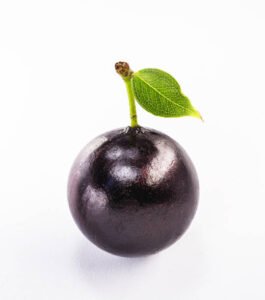 Antioxidant Properties
Antioxidant Properties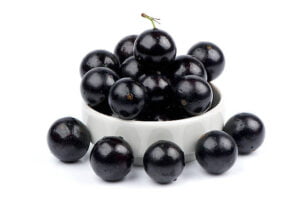 Anti-Inflammatory Effects
Anti-Inflammatory Effects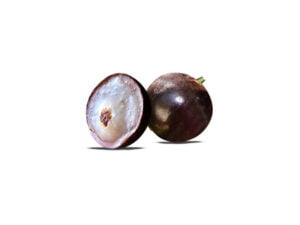 Anti-Cancer Potential
Anti-Cancer Potential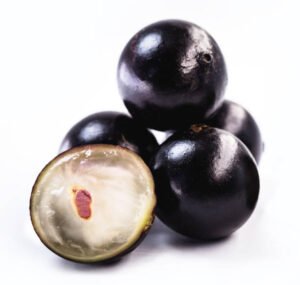 Cardiovascular Health
Cardiovascular Health Skin Health
Skin Health Benefits for Digestive Health
Benefits for Digestive Health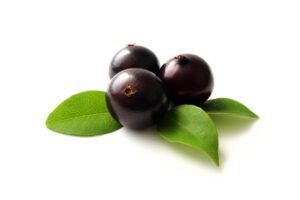 Anti-Obesity Properties
Anti-Obesity Properties